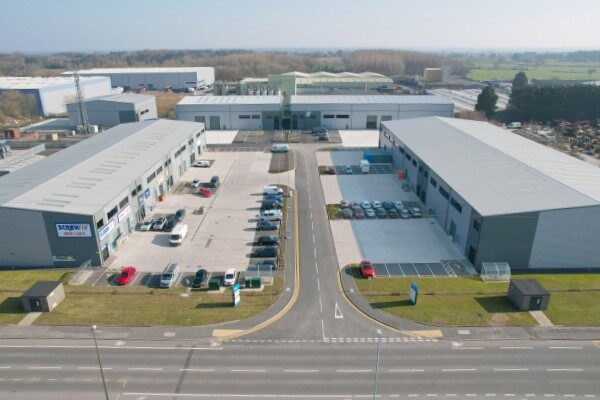The industrial landscape of the United Kingdom is witnessing a remarkable transformation, driven by the advent of cutting-edge technologies in warehouse operations. As the UK economy looks to a net zero future we can see a paradigm shift in warehouse technologies even further. These innovations are not just enhancing efficiency and productivity but are also redefining the very nature of warehousing across the UK, from the bustling industrial hubs of Manchester and Liverpool to the emerging markets in Blackburn, Bolton, and beyond.
IoT Solutions – The Backbone of Modern Warehouses
The Internet of Things (IoT) is at the forefront of this revolution. In cities like Manchester and Liverpool, known for their advanced and established industrial sectors, IoT is making a significant impact. By enabling a network of interconnected devices, IoT facilitates real-time monitoring and management of warehouse operations. This technology allows for automated inventory tracking, environmental condition monitoring, and even predictive maintenance, ensuring minimal downtime and optimised resource use. In Manchester, with its tech-savvy business environment, warehouses are rapidly adopting IoT solutions to stay competitive. Of course, companies like Amazon have been at the forefront of IoT for some time but as the technology advances we can envisage SMEs embracing interconnected devices as part of their day-to-day workstreams, there is no reason why industries from Preston to The Potteries can embrace IoT.

Drones – Elevating Inventory Management
Another groundbreaking trend is the use of drones in warehouse management. Particularly in sprawling warehouse complexes in areas like Liverpool, the wider Merseyside region and The Wirral, drones are becoming indispensable for efficient inventory management and security surveillance. These aerial devices are capable of navigating large warehouses with ease, providing real-time inventory data, and reaching areas that are otherwise challenging for human workers.
Wearable Tech – Empowering the Workforce
In locations such as Blackburn and Bolton, where industrial activities are on the rise, wearable technology could play a pivotal role. Devices like smart glasses, wrist-mounted controllers, and health-monitoring wearables could empower the workforce with hands-free operations, real-time data access, and enhanced safety measures. These kinds of technologies will be particularly beneficial in improving picking accuracy and speed, directly contributing to increased productivity.
AI and Machine Learning – Driving Smart Decision-Making
Artificial Intelligence (AI) and Machine Learning (ML) is also making inroads into warehouse management. By analysing large volumes of data, AI can optimise warehouse layouts, streamline supply chain management, and even predict market trends, which is invaluable for strategic planning. Regardless of location, most industrial businesses are becoming increasingly data-driven, and AI and ML are becoming key components of warehouse technology ecosystems.
Sustainability – A Growing Focus
An emerging trend across all UK locations, especially given the move to net zero, is the focus on sustainability in warehouse operations. Technologies like solar panels, energy-efficient lighting, and automated climate control systems will increasingly become integrated into warehouses. This not only reduces the carbon footprint but also aligns with the growing demand for environmentally responsible business practices.

As the UK continues to embrace these technological advancements, the future of warehousing looks increasingly efficient, sustainable, and resilient. From the tech-hub cities like Manchester and Liverpool to the evolving industrial landscapes of Blackburn, Bolton, and Chester, technology is not just an add-on but a fundamental aspect of modern warehousing, promising a smarter, more efficient future for the industry. If you are on the hunt for an industrial property, contact us and check in with the experts.
